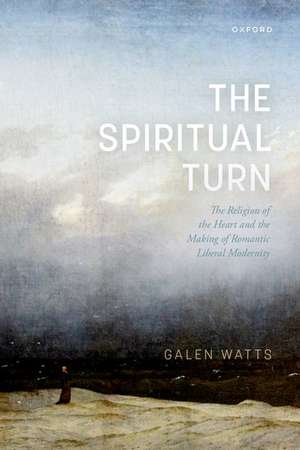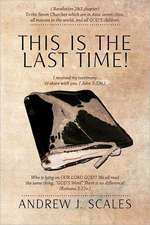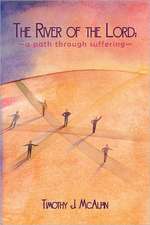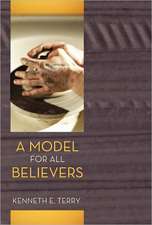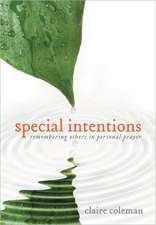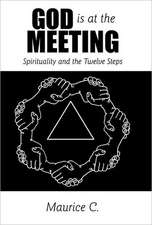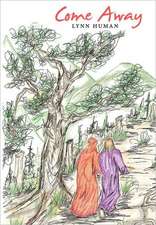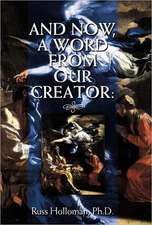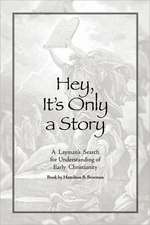The Spiritual Turn: The Religion of the Heart and the Making of Romantic Liberal Modernity
Autor Galen Wattsen Limba Engleză Hardback – 10 mai 2022
Preț: 572.40 lei
Preț vechi: 698.05 lei
-18% Nou
Puncte Express: 859
Preț estimativ în valută:
109.53€ • 114.66$ • 90.63£
109.53€ • 114.66$ • 90.63£
Carte tipărită la comandă
Livrare economică 05-19 aprilie
Preluare comenzi: 021 569.72.76
Specificații
ISBN-13: 9780192859839
ISBN-10: 0192859838
Pagini: 274
Dimensiuni: 164 x 240 x 21 mm
Greutate: 0.58 kg
Editura: OUP OXFORD
Colecția OUP Oxford
Locul publicării:Oxford, United Kingdom
ISBN-10: 0192859838
Pagini: 274
Dimensiuni: 164 x 240 x 21 mm
Greutate: 0.58 kg
Editura: OUP OXFORD
Colecția OUP Oxford
Locul publicării:Oxford, United Kingdom
Recenzii
This is a very important book. Watts challenges ideas of modernity as dismal and alienating, illuminates the deep traction of Romanticism, and argues that the 1960s triggered a fundamental shift in contemporary social life. Rooted in cultural sociology, this work is deeply historical and replete with richly empirical case studies. It is a decisive intervention into the argument about what life is like today.
There is still a lot we need to understand about our modern 'secular' age, and about the cultural changes which became manifest in the 1960s. Galen Watts' insightful and deeply researched book, with his key concept of 'romantic liberalism', sheds a great deal of light on all this.
Evidence for the decline of religion in a secular age proves straightforward in drawing a straight and narrow storyline of subtraction, measured by more individuals in each generation reporting they no longer believe in biblical literalism, attend weekly worship, belong to a congregation, or identify with a denomination. What are they feeling, thinking, and doing instead? What moral visions and virtues are they seeking to live out? Here is a broader and deeper account to weigh these questions by exploring the spread of romantic liberalism in step with self-expressive spiritual belief, practice, and communion in and beyond the pews. It tells a story still in the making we need to heed.
Efforts to salvage religion as a form of personal spirituality have been recurrent since the nineteenth century, and Watts brings keen cultural, sociological, and ethnographic analysis to those sundry projects of self-realization and experiential insight, especially as they have found expression since the 1960s. He artfully balances empathy and critique in his pursuit of those spiritual inquirers who tune themselves-both creatively and predictably-to the discursive norms of romantic, liberal modernity.
A nuanced look at the modern 'turn' to individual-centered spiritualities. Watts draws on new empirical research to challenge conventional wisdom about modern spirituality fostering self-absorption and eroding communal bonds. This even-handed sociological analysis reveals that although these unchurched spiritualities are sometimes guilty as charged, they can also be as morally demanding and as much a source of social solidarity as their institution-centered counterparts.
This deeply thoughtful and important work draws on classical sociological theory and a range of empirical data to offer a unique insight into the nature and significance of `the spiritual turn' in modern Western democracies. It should be of great interest, not just to sociologists of religion, but to all sociologists of culture.
Galen Watts covers an immense amount of intellectual and ethnographic ground with great clarity, intelligence, and passion. In doing so, he challenges received ideas about liberalism, spirituality, and the individual; but he also presents a positive ethical vision in critical yet constructive dialogue with such figures as Émile Durkheim, Robert Bellah and Charles Taylor. The Spiritual Turn is an indispensable read for anybody interested in the moral underpinnings of contemporary liberal democracies.
Written by one of the rising stars in the field of cultural sociology, Galen Watts brings readers on a fascinating theoretical and empirical journey to tease out the social realities and roots of current-day spiritualities.
Watts' book sets a remarkably high bar for itself. I argue that he meets it in spades. He has produced a thoughtful, insightful, and well-organized book, which clearly depicts an elegant new theory of contemporary religious culture. This book will prove useful historical and cultural context for spiritual practitioners, students, and spirituality scholars alike...I highly recommend his book.
Very useful study.
The Spiritual Turn makes many thought-provoking points, and it is refreshing to read serious consideration of forms of spirituality/religiosity often dismissed out of hand...I would recommend The Spiritual Turn to any academic reader with an interest in New Spiritualities and the secularization process.
The Spiritual Turn is a compelling and passionate call to attend to the sacred tenets of liberal democracies and deserves to be read very widely.
There is still a lot we need to understand about our modern 'secular' age, and about the cultural changes which became manifest in the 1960s. Galen Watts' insightful and deeply researched book, with his key concept of 'romantic liberalism', sheds a great deal of light on all this.
Evidence for the decline of religion in a secular age proves straightforward in drawing a straight and narrow storyline of subtraction, measured by more individuals in each generation reporting they no longer believe in biblical literalism, attend weekly worship, belong to a congregation, or identify with a denomination. What are they feeling, thinking, and doing instead? What moral visions and virtues are they seeking to live out? Here is a broader and deeper account to weigh these questions by exploring the spread of romantic liberalism in step with self-expressive spiritual belief, practice, and communion in and beyond the pews. It tells a story still in the making we need to heed.
Efforts to salvage religion as a form of personal spirituality have been recurrent since the nineteenth century, and Watts brings keen cultural, sociological, and ethnographic analysis to those sundry projects of self-realization and experiential insight, especially as they have found expression since the 1960s. He artfully balances empathy and critique in his pursuit of those spiritual inquirers who tune themselves-both creatively and predictably-to the discursive norms of romantic, liberal modernity.
A nuanced look at the modern 'turn' to individual-centered spiritualities. Watts draws on new empirical research to challenge conventional wisdom about modern spirituality fostering self-absorption and eroding communal bonds. This even-handed sociological analysis reveals that although these unchurched spiritualities are sometimes guilty as charged, they can also be as morally demanding and as much a source of social solidarity as their institution-centered counterparts.
This deeply thoughtful and important work draws on classical sociological theory and a range of empirical data to offer a unique insight into the nature and significance of `the spiritual turn' in modern Western democracies. It should be of great interest, not just to sociologists of religion, but to all sociologists of culture.
Galen Watts covers an immense amount of intellectual and ethnographic ground with great clarity, intelligence, and passion. In doing so, he challenges received ideas about liberalism, spirituality, and the individual; but he also presents a positive ethical vision in critical yet constructive dialogue with such figures as Émile Durkheim, Robert Bellah and Charles Taylor. The Spiritual Turn is an indispensable read for anybody interested in the moral underpinnings of contemporary liberal democracies.
Written by one of the rising stars in the field of cultural sociology, Galen Watts brings readers on a fascinating theoretical and empirical journey to tease out the social realities and roots of current-day spiritualities.
Watts' book sets a remarkably high bar for itself. I argue that he meets it in spades. He has produced a thoughtful, insightful, and well-organized book, which clearly depicts an elegant new theory of contemporary religious culture. This book will prove useful historical and cultural context for spiritual practitioners, students, and spirituality scholars alike...I highly recommend his book.
Very useful study.
The Spiritual Turn makes many thought-provoking points, and it is refreshing to read serious consideration of forms of spirituality/religiosity often dismissed out of hand...I would recommend The Spiritual Turn to any academic reader with an interest in New Spiritualities and the secularization process.
The Spiritual Turn is a compelling and passionate call to attend to the sacred tenets of liberal democracies and deserves to be read very widely.
Notă biografică
Galen Watts is a Banting Fellow at KU Leuven's Centre for Sociological Research.
